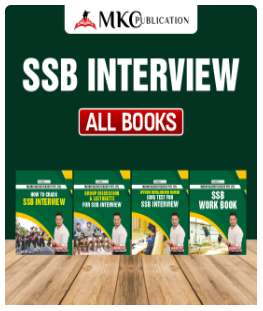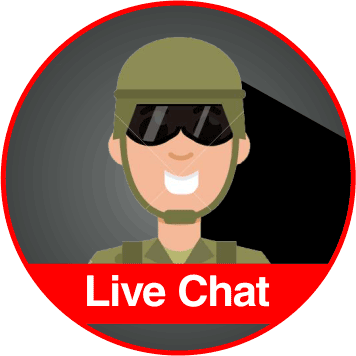Body Language Tips for SSB Interview
As people often say, the way you act and carry yourself is the first thing others notice about you, and this is especially important during a military interview called SSB. Your Body Language in SSB and actions and how you present yourself can show a lot about your character, even without speaking a word.
If you’re interested in joining the defense forces, you’ve probably noticed that military officers have impressive and distinctive personalities. If you want to be like them, it’s a good idea to follow some advice to improve how you present yourself and boost your confidence during the SSB interview. In this blog , we shall know some most effective Body Language Tips for SSB Interview . Join Major kalshi Classes – Best SSB Interview Coaching in Allahabad .

9 Body Language Hacks for SSB Interview :-
- Think about how you behave – Your body language can be noticed even before you meet the assessor. So, it’s important to act like an officer not just during the SSB interview but also in your everyday life. Show maturity in your actions and be mindful of what you do during the SSB process because you never know who might be observing you. If you make a mistake during any of the SSB tasks, it’s better to admit it rather than thinking that no one is paying attention to your actions. You are being watched even when you’re not aware of it, so it’s important to be mindful of that.
- Think about how you enter the room – When you go for your personal interview, it’s important to make a good first impression from the moment you walk in. Avoid looking nervous or slouched. Instead, enter with a gentle smile. Take a few deep breaths and sit comfortably and upright to show that you are calm and confident. If the assessor offers a handshake, respond with a normal grip, but don’t initiate it yourself. Maintain eye contact with the assessor and keep your hands and feet under control. Wear a friendly smile to reflect your positive personality, but don’t overdo it by smiling or laughing too much when it’s not necessary.
Read Here – How To Prepare For Psychological Test In SSB Interview ? | Complete Details Of Psychology Test In SSB
- Speak confidently and effectively – How you talk during the SSB is really important, and people can tell a lot from your body language and expressions when you speak. When you talk, aim to make a strong impression. Always speak clearly and with good articulation. Your confidence and personality should shine through the way you communicate during the SSB interview.
- Maintain good posture, and stay composed – It’s important to stay relaxed but not too distant. When you’re asked to do something, avoid slouching, being too rigid, or feeling extremely pressured. Act in a calm and engaged manner, much like you do in your everyday life. However, there’s a fine line between being self-assured and overly confident, so avoid going overboard. Be self-assured with a touch of a positive attitude, while always keeping the purpose of the SSB in mind. Stay calm and composed, like a mature person, but don’t come across as cold. If things aren’t going as planned or your team isn’t cooperating, it’s okay to confidently address the situation and communicate with them appropriately. Don’t ignore or overlook such situations.
- Maintain Good Posture – When you’re at the SSB, it’s important to walk, talk, and stand confidently. Never lean on one leg. Stand up straight with an upright and energetic posture. To make sure you do this, practice it and consider doing physical exercises to keep your posture in check before attending the SSB interview.
- Show Maturity on the Outside and Stay Cheerful Inside – During the SSB, you’ll face situations that can be quite stressful. The key is to handle the tasks with maturity, giving your best effort and focus, but without overwhelming yourself with pressure and stress for the entire five days. Stay lively and cherish the small moments with your fellow candidates during your free time or after completing tasks in a suitable and enjoyable manner.
- Avoid Overthinking – Whether you’re heading to the testing area or even before that, try not to overthink things. Overthinking adds unnecessary stress to your mind, and this can easily be noticed by the assessors through your body language. So, prepare well for the tasks ahead of time, but once you’re there, try not to overanalyze. Think of it as a personality test where excessive thinking won’t help much. Trust in yourself and your abilities. Your practiced skills and the qualities you’ve developed in your personality will naturally come into play when you’re your authentic self, without the burden of excessive stress caused by overthinking. Believe in yourself, take a deep breath, and just go for it.
- Be Regular but Exceptional When Needed – The Indian armed forces aren’t seeking extraordinary individuals, but rather ordinary people who can accomplish exceptional tasks. Don’t attempt something extraordinary during the SSB that might result in a mishap. You understand your capabilities better than anyone else, so recognize your boundaries and only take calculated risks in situations where you’re confident you can succeed.
- Stay Curious and Explore – The SSB process focuses on your personality and how well you maintain a lively, cheerful, and positive attitude even when facing stress. Don’t spend all your time studying or thinking about the tasks. Use your free time to explore the SSB campus, discover the tourist attractions in the city where your SSB center is located, and learn about the resources available at the center. This demonstrates your curiosity and inquisitive nature, and it might lead to questions from the assessors to test your observational skills.
SSB INTERVIEW : DETAILED EXPLANATION
The SSB (Services Selection Board) interview is a rigorous and comprehensive selection process used by the Indian Armed Forces (Army, Navy, and Air Force) to assess and select candidates for officer positions. The process is designed to evaluate a candidate’s personality, leadership qualities, and suitability for a career in the armed forces. Here’s a detailed explanation of the SSB interview selection process:
1. Screening Test: This is the initial stage of the SSB interview process and takes place on the first day. It includes two tests:
- Officer Intelligence Rating (OIR) Test: This is a written test that assesses the candidate’s verbal and non-verbal reasoning abilities. It consists of multiple-choice questions and is designed to test cognitive skills.
- Picture Perception and Description Test (PPDT): In this test, candidates are shown a picture for 30 seconds and are required to write a story based on their observations. This test evaluates the candidate’s imagination, story-telling ability, and capacity to grasp details from the image.
Candidates who qualify in the Screening Test proceed to the next stage.
2. Psychological Tests: This stage consists of various psychological tests designed to assess the candidate’s mental and emotional stability. It includes:
- Thematic Apperception Test (TAT): Candidates are shown a series of pictures and asked to write a story based on each picture. This helps assess their thought processes and responses to different situations.
- Word Association Test (WAT): Candidates are presented with a series of words, and they are required to write the first thought or sentence that comes to their mind in response to each word. This reveals their immediate reactions and thought patterns.
- Situation Reaction Test (SRT): Candidates respond to a series of hypothetical situations by writing down what they would do in each scenario. This test assesses their decision-making abilities and adaptability.
- Self-Description Test: Candidates are asked to describe themselves by writing about their strengths, weaknesses, and aspirations. This provides insight into their self-awareness and self-reflection.
3. Group Testing Officer (GTO) Tests: This stage assesses the candidate’s ability to work as part of a team and includes the following exercises:
- Group Discussion (GD): Candidates are divided into groups and given a topic to discuss. Assessors observe their communication skills, leadership qualities, and ability to collaborate within a group.
- Group Planning Exercise (GPE): In this exercise, candidates are presented with a problem-solving task, and they must collectively come up with a plan to address the issue. This evaluates their planning and organizational skills.
- Progressive Group Task (PGT): Candidates are given a series of physical obstacles to overcome as a team. This assesses their teamwork, leadership, and problem-solving abilities.
- Half Group Task (HGT): Similar to PGT, but the group is divided into two halves, and each half has to complete a task independently.
- Lecturette: Candidates are required to give a short impromptu speech on a topic they are given, testing their ability to think on their feet and communicate effectively.
4. Interview: Candidates face a one-on-one interview with an interviewing officer who assesses their suitability for the armed forces. The interview covers a wide range of topics, including personal background, academic achievements, interests, and aspirations.
5. Conference: On the final day of the SSB interview, all assessors and officers gather for a conference. During this conference, the candidate’s performance in all aspects is discussed, and a final recommendation for selection or rejection is made.
Candidates who receive a recommendation for selection move on to the medical examination and other administrative processes before joining the respective academies for training.
It’s important to note that the SSB interview is not just about academic knowledge; it primarily focuses on evaluating a candidate’s personality, leadership potential, and suitability for a career in the armed forces. Candidates are assessed on their ability to work in high-stress situations, adaptability, and their overall demeanor. If You are Preparing for SSB Interview , Join Major kalshi Classes – Best SSB Interview Coaching in India.








